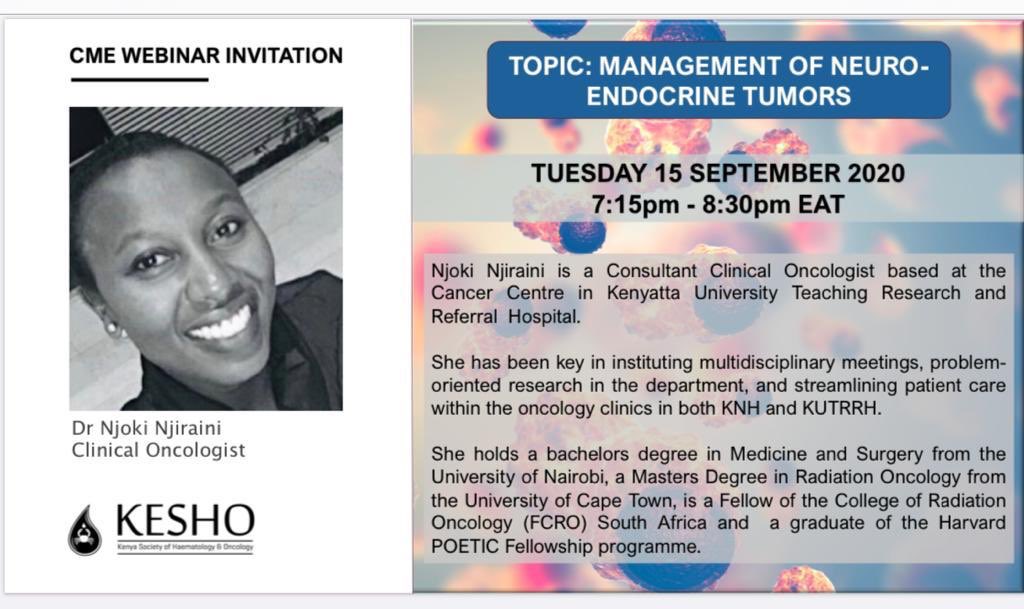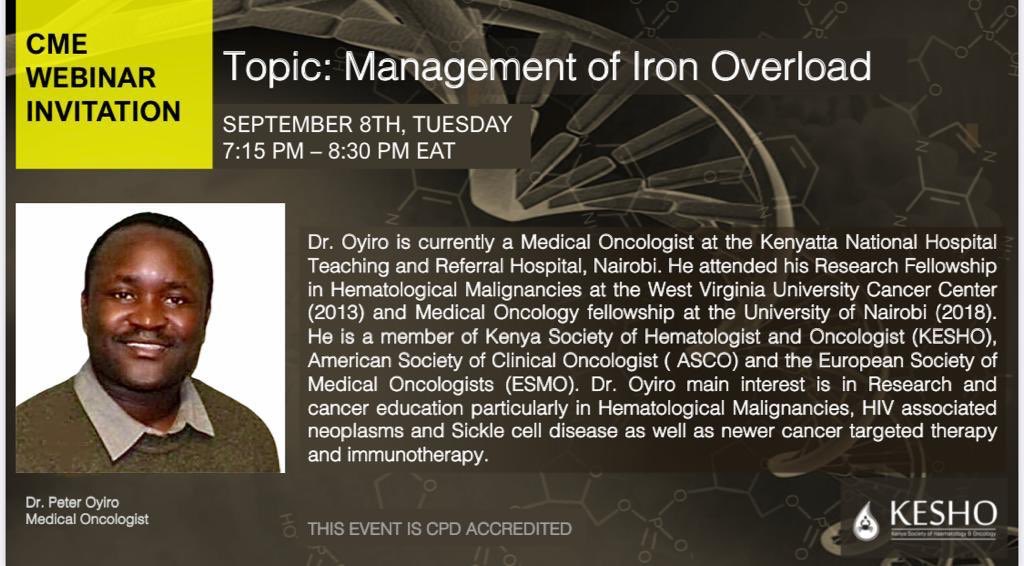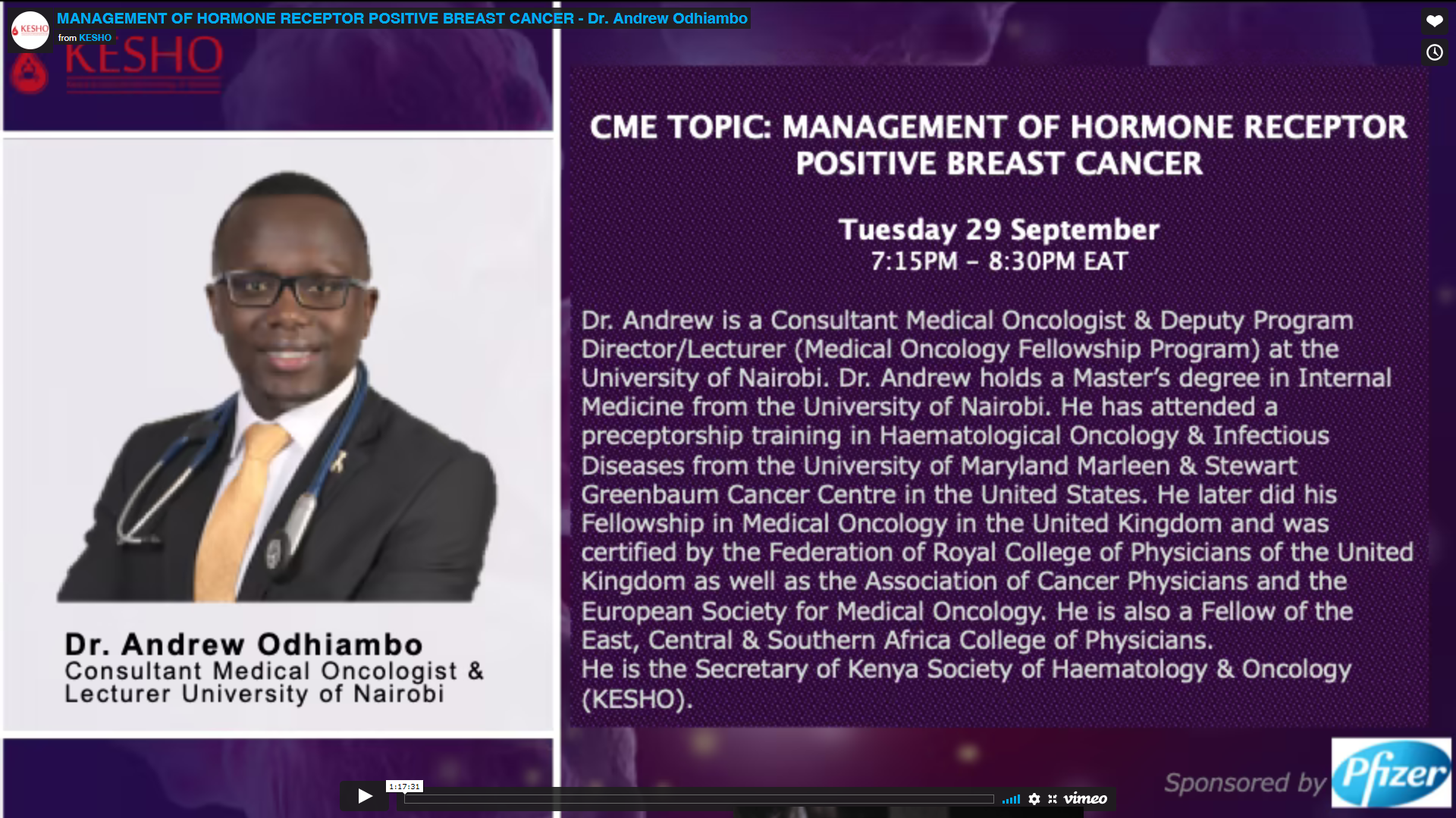
- This event has passed.
Management of Neuroendocrine Tumors
Event Navigation

Moderator: Dr. Sitna Mwanzi
Sponsor: Novartis
Presenters:
- Njoki Njiraini, a consultant clinical oncologist based at the Cancer Centre in Kenyatta University Teaching Research and Referral Hospital.
Neuroendocrine Neoplasms arise from diffuse neuroendocrine cells in the body and are broadly divided into well-differentiated neuroendocrine tumors (NETs), including the sporadic small intestine, pancreatic, thorax, and thymus NETs, and poorly differentiated neuroendocrine carcinomas (NECs), classified based on differentiation, Ki67 levels, and mitotic figures. NETs arise from neuroendocrine cells throughout the body. There has been increasing incidence over the last 15 years, with a male preponderance and a more adverse outcome. Diagnosis is mainly through histology and immunohistochemistry. Staging for NECs is mainly by adenocarcinoma staging system, which mainly involves imaging through CT scan, MRI, Contrast-Enhanced USS, endoscopic USS, and functional imaging. Treatment is dependent on TNM staging and grading of the disease and includes surgery, somatostatin analogs, hepatic-directed therapies, and chemotherapeutics. For a patient with carcinoid syndrome, the short-acting octreotide can be considered first, while waiting for long-acting octreotide to act. Locally, therapies are available in 20 mg from Novartis retailing at 68000 Kenya shillings, but 30mg are also available in the market through other distributors. The toxicity profiles should be put into consideration e.g. diarrhea, although sometimes it’s difficult to differentiate drugs’ side effects from the initial tumor signs. Neuroendocrine carcinomas are classified as small or large cells and mostly the patients have poor outcomes. There is a need to improve imaging and multidisciplinary teams to share local experiences of neuroendocrine patients.

